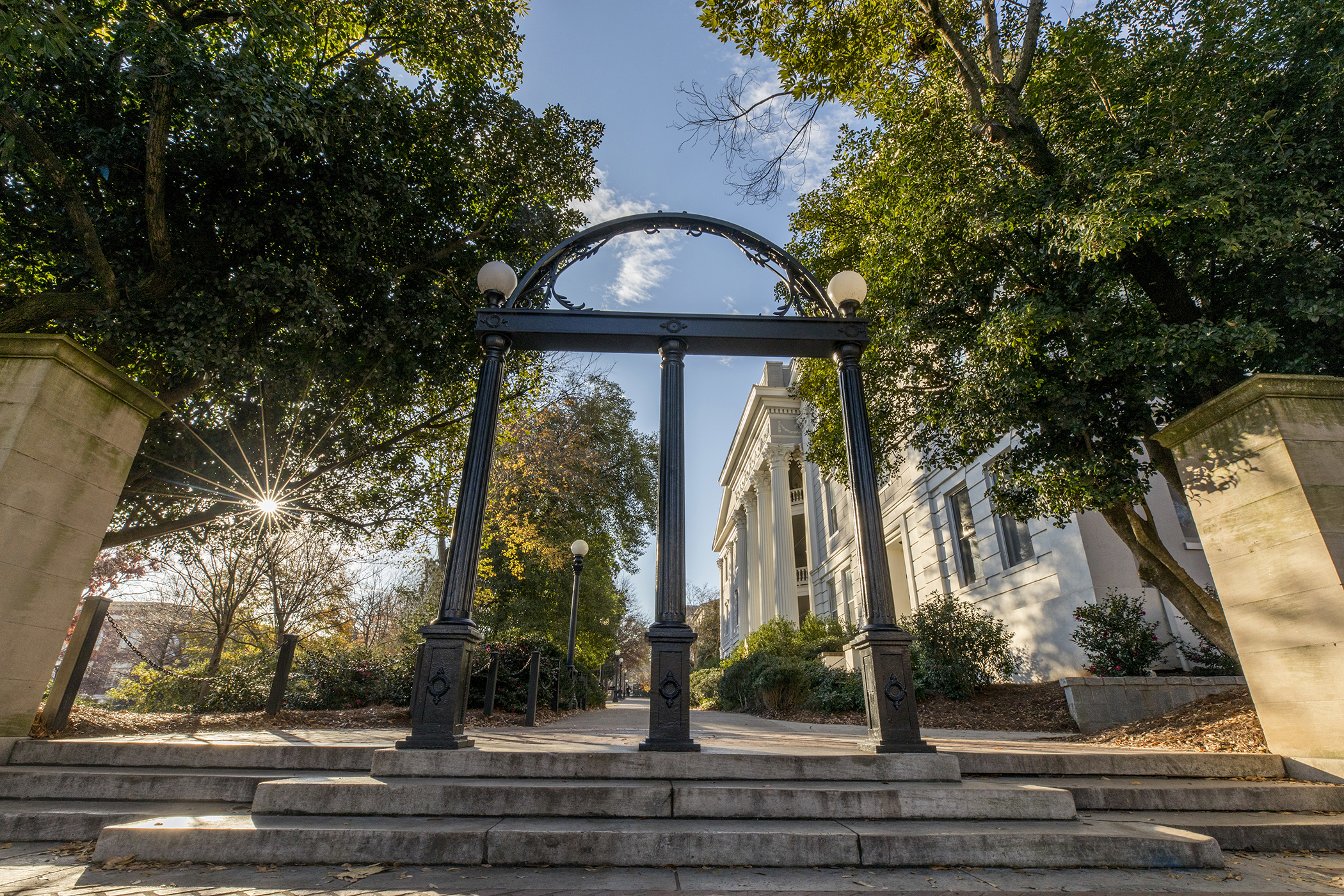To help the University of Georgia secure future research contracts with federal mission-focused agencies, this spring the university created the UGA Research Institute (UGARI), an administrative unit intended to help guide both the institution and its researchers in how to be better partners for mission agency research.
UGARI will take the lead in streamlining research administration and facilitating secure research practices, both of which are critical for landing more research partnerships with mission agencies such as the Department of Energy, Department of Defense, Department of Homeland Security and NASA.
Creation of UGARI began in earnest last year after a consortium that includes UGA was awarded the contract to manage the Savannah River National Lab, located at the Department of Energy’s Savannah River Site. Gene Rhodes, director of UGA’s Savannah River Ecology Lab, and Larry Hornak, associate vice president for integrative team initiatives in the Office of Research, will serve as interim co-directors of UGARI until a permanent leader is hired, likely sometime in 2023.
“Our primary reason for creating UGARI was the uniqueness of the customer,” said Hornak. “Mission agencies have very specific needs and requirements associated with their work, everything from physical requirements in where and how the work is done, to contract support, project reporting, and responsiveness to new agency directions during project execution.”
For example, researchers interested in contracting to meet a broader set of critical agency needs may require security clearances, and UGARI will help faculty understand what they need to do to receive such clearances. Mission agencies also often ask for white papers or other short proposals before issuing a formal call for submissions; UGARI will guide faculty in preparing such documents. Third, mission agencies have specific expectations regarding the contracting process itself; UGARI will be supported by a team in Sponsored Projects Administration that is trained to meet those expectations.
“The UGA Research Institute helps our faculty play an even greater role in applying their expertise to the needs of our nation,” said S. Jack Hu, the university’s senior vice president for academic affairs and provost. “Its establishment comes at a time of growing research productivity and impact at our institution.”
UGARI will begin with a tight focus around the Battelle Savannah River Alliance (BSRA), which includes UGA and four other universities in Georgia and South Carolina. Other UGARI centers of activity will form around future contracts with other mission agencies. Each center of activity will have its own UGARI associate director, charged with working with faculty to grow that center’s relationships and funding.
“Given our longstanding relationship with the SRS, SREL represents a significant UGA asset for development of collaborative environmental research with our BSRA partners, but we’re also excited about opportunities in other areas such as advanced manufacturing and cybersecurity,” Rhodes said. “What we want to do with UGARI is make ourselves valuable to the partnership and support joint efforts through subawards while we develop larger, collaborative proposals.”
While most mission agency work can leverage existing UGA facilities, as the university’s engagement in secure work grows, UGARI may require dedicated, physically secure research space—for which planning is underway, Hornak said. But even UGARI’s creation sends a message that UGA is ready to engage.
“Right now we are setting up the infrastructure to be responsive to mission agency needs—that’s the first step,” said Marty Bink, director of defense and security collaborations in the Office of Research. “What UGARI says to the government is that UGA has the capabilities to do the work, whatever the field is—that we’ve made a commitment and are bringing together the people needed to work in this space.”
Another distinction of this type of research, Bink said, is its focus on a clear deliverable. Other federal funding agencies like NSF and NIH have goals in mind for their funded projects, but very often it’s a matter of pushing the science forward in increments that are unknown at the outset. Mission agencies, on the other hand, typically know exactly what they want, and they’re going to work with trusted partners that can deliver.
“We want to continue to be a trusted partner for the government, as we’ve demonstrated we can be through 70 years of supporting the Department of Energy at the Savannah River Site,” said Karen Burg, vice president for research. “With our strengths in a broad array of research disciplines, UGA is a very attractive research partner and can support these agencies across a range of needs. I’m committed to working with UGARI and UGA leadership to take this exciting next step in the university’s commitment to serving the public through our research.”


